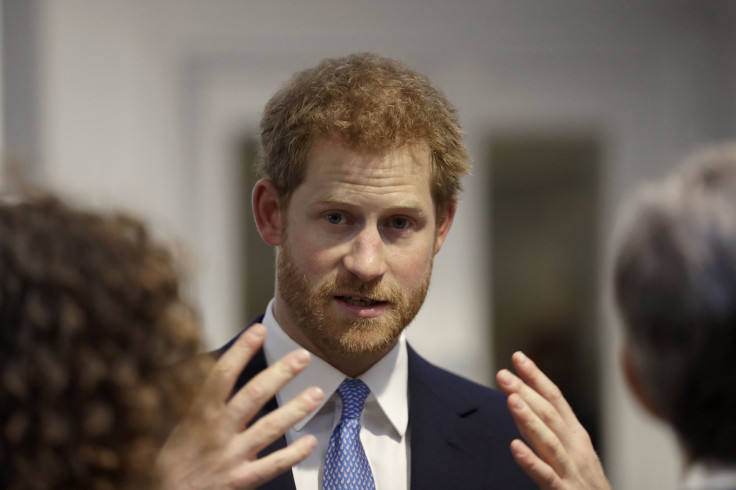Will There Be No King Or Queen After Elizabeth II? Prince Harry Says No One Wants To Wear The Crown

There has often been speculation regarding who would take up the British throne next after Queen Elizabeth II dies or if the monarchy would be impacted in the event of her husband Prince Philip’s death. In an interview Wednesday however, Prince Harry told Newsweek no one in the royal family wanted to be king or queen, but said “we will carry out our duties at the right time.”
The interview came a day after Harry's father, Prince Philip, the 96-year-old husband of Britain's longest reigning monarch Queen Elizabeth, was hospitalized for treatment for an infection. He was admitted to King Edward VII Hospital in London on Tuesday due to a pre-existing condition he had been suffering from. But he was later confirmed to be in "good spirits" by Buckingham Palace.
On Thursday, the ailing prince left the hospital, and BBC’s royal correspondent Peter Hunt tweeted Prince Philip will likely spend a few days resting at Windsor Castle.
Palace spokesman:
— Peter Hunt (@_PeterHunt) June 22, 2017
I can confirm that The Duke of Edinburgh left hospital this morning
Prince Philip is likely to rest at Windsor Castle for the next few days.
— Peter Hunt (@_PeterHunt) June 22, 2017
As soon as the news of Prince Philip's hospitalization spread on Wednesday, people started to speculate what would happen if he were to die.
However, since the Duke of Edinburgh is prince consort and not king, his death will not have a significant impact on the line of succession to the throne. It would also have no constitutional implications. As mentioned in English common law, if a woman marries a man, she would take his last name, rank and title. This law applies to the royal family as well. But, there is another aspect to the law regarding the royals, where it states that if a royal woman with a higher title gets married to a royal man with a lower ranked title, she gets to retain the title.
Thus, Queen Elizabeth II retained her title because she received it after the death of her father King George VI. After she became queen, Prince Philip was given the title of Duke of Edinburgh and became prince consort on account of being the husband of the queen. After Prince Philip’s death, their youngest son Prince Edward would become the Duke of Edinburgh.
The British Line of Succession:
In case of the queen’s abdication or death, Princes Charles will be next in line for the throne. In Britain it is generally passed on from the reigning monarch to the eldest son. If Charles, who has the title of Prince of Wales as well as the Duke of Rothesay and the Duke of Cornwall, becomes king after the queen’s death, his wife Camilla Parker Bowles will become queen. Charles got married to Camilla after their extramarital affair while he was still married to the late Princess Diana.
Prince William would be next in line after his father’s death or abdication. Prince Harry is fifth in line because William and Kate Middleton have two children. So the crown will pass on to Prince George and Princess Charlotte after their father as the crown passes on to the children rather than to William’s brother, Harry.
Prince Harry’s chances off getting the throne might be pushed back even further if William and Middleton have more children. Prince George having children would push Harry even further down the line of succession.
Read: Who Will Be King? After Queen Elizabeth Dies, Prince Charles Could Spark 'Constitutional Crisis'
None of this however, seems to be a burning issue for Prince Harry.
“Is there any one of the Royal Family who wants to be king or queen? I don't think so,” he told Newsweek, further adding the royals were doing it “for the greater good of the people.”
Earlier in 2016, the 32-year-old had reportedly said he never expected to be king. While visiting a primary school in Berkshire last year, a boy asked Prince Harry: “Are you ever going to be King?”
“That's the question everybody wanted, let's be honest!” the prince joked. “You'll be glad to know, probably not!”
© Copyright IBTimes 2025. All rights reserved.






















